INTERNACIONAL
MS-13, Tren de Aragua targeted for death blow in new GOP bill aimed at migrant crime

FIRST ON FOX: House Republicans introduced a bill Wednesday, the Punishing Illegal Immigrant Felons Act, which would dramatically increase penalties for criminal activity by illegal immigrants, something the bill’s sponsors believe can help deliver a death blow to organized crime by illegals in the U.S.
Rep. Brad Knott, R-N.C., said the bill already has robust support in the House and that key members of the Trump administration have been very «supportive.»
This comes as the Trump administration has moved quickly to lock down the border and begin arresting the «worst of the worst» illegal aliens present in the country. The Trump administration has promised to be «ruthlessly aggressive» in cracking down on illegal criminal groups endangering Americans.
However, Knott, who introduced the bill Wednesday, told Fox News Digital that, from his experience as a prosecutor, he believes Congress must act quickly to secure the permanent changes needed to deter many of the hardened criminals who have made organized crime in the U.S. «big business.»
NOEM CALLS FOR THE DEATH PENALTY FOLLOWING MARITIME HUMAN SMUGGLING ATTEMPT THAT LEFT CHILD DEAD
Rep. Brad Knott, R-N.C., and House Republicans are introducing a bill this week to dramatically increase penalties for crimes committed by illegal aliens, something they believe is necessary to deter the «worst of the worst» from entering the country. (House Creative Services via Wikimedia Commons and Alex Pena/Anadolu via Getty Images)
«There is a very real set group of criminals that a wall and deportations alone is wholly insufficient to deter them from coming to the United States to commit crime,» Knott said. «I have prosecuted people who were deported more than ten times. Yet they come back exclusively to commit crime, whether that is human trafficking, whether it’s drug trafficking, whether it’s money laundering, you name it.»
Knott said, up until now, there has been an «incentive» for criminals, including members of migrant gangs like MS-13 and Tren de Aragua, to come to the U.S. «because they are able to enrich themselves with very low risk of extreme cost.»
«Two years is no deterrent,» he said. «I prosecuted cartel members, and if they got a 24-month sentence, a two-year sentence, it would not interrupt their criminal operation at all.»
During his time as a federal prosecutor, Knott said, instances of illegal felons returning to commit more crimes after being deported were «too many to remember.»
BLUE CITY MAYOR SAYS ICE ARRESTS OF DANGEROUS CRIMINALS ARE NOT ‘FOCUSED ON MAKING US SAFER’
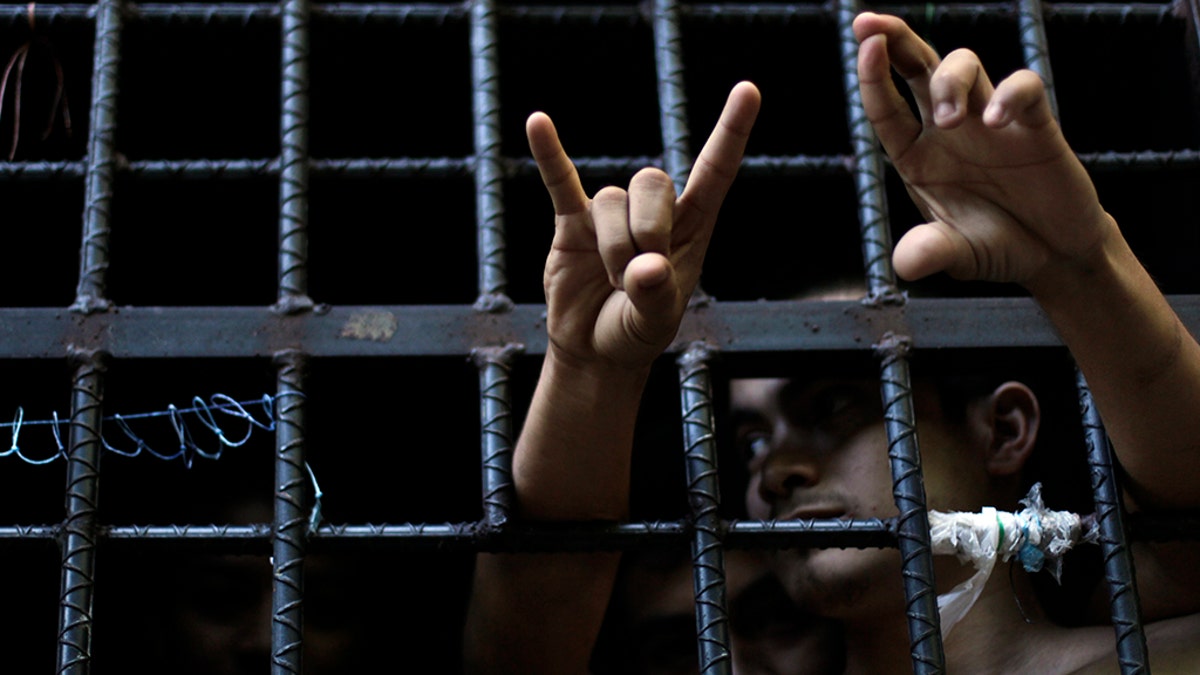
Alleged MS-13 gang members (Reuters)
«I talked to someone who was deported more than ten times … and I asked him, ‘Why do you keep coming back to the United States?’ And he was very candid with me. He said, ‘Why wouldn’t I?’» Knott shared. «He could make more money. He could operate in a country that was safer. People were nice. He could enrich himself while poisoning the children that he would sell drugs to.
«This bill in large part closes that gap in the law,» he explained. «It categorizes illegal aliens who commit crimes in a wholly different category.»
If passed and signed into law, Knott’s bill would increase the punishment for any crime committed by an illegal alien that is punishable by more than one year from a maximum of two years to a minimum of five years.
Illegals who are removed and then reenter the country illegally can also face up to ten years in prison under the law.
‘OFF OUR STREETS’: ICE MAKES MAJOR ARREST OF INTERNATIONALLY WANTED ‘SUSPECTED TERRORIST’
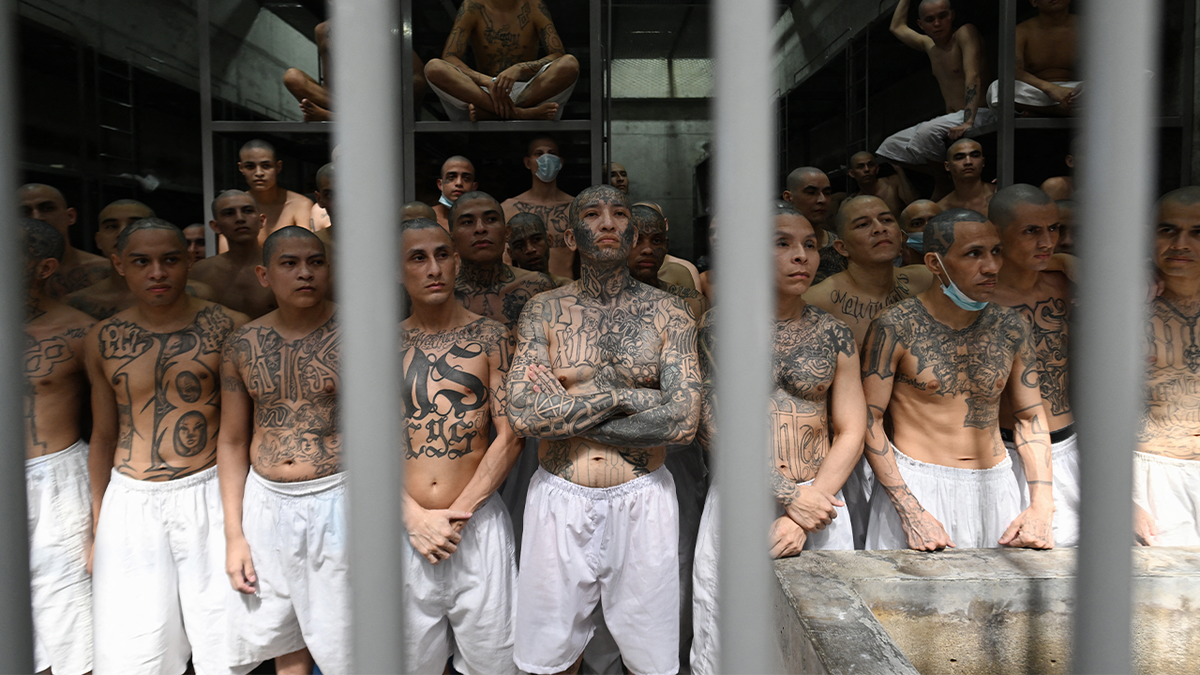
Inmates remain in a cell at the Counter-Terrorism Confinement Center prison, where hundreds of members of the MS-13 and the 18th Street gangs are being held, in Tecoluca, El Salvador, Jan. 27, 2025 (Marvin Recinos/AFP via Getty Images)
For illegal felons who have been previously removed from the country and returned again to commit more crimes, the bill would increase the punishment to a minimum of ten years and up to life in prison.
CLICK HERE FOR MORE IMMIGRATION COVERAGE
Knott explained that the bill still leaves flexibility to federal authorities, leaving the option of deportation on the table while simultaneously increasing the legal penalties available to erase the incentives for illegally entering the country to commit crimes.
He said » flexibility is what law enforcement needs to really combat this on a person-by-person basis.»
11 ALLEGED TEEN TREN DE ARAGUA GANG MEMBERS ATTACK NYPD OFFICERS: POLICE
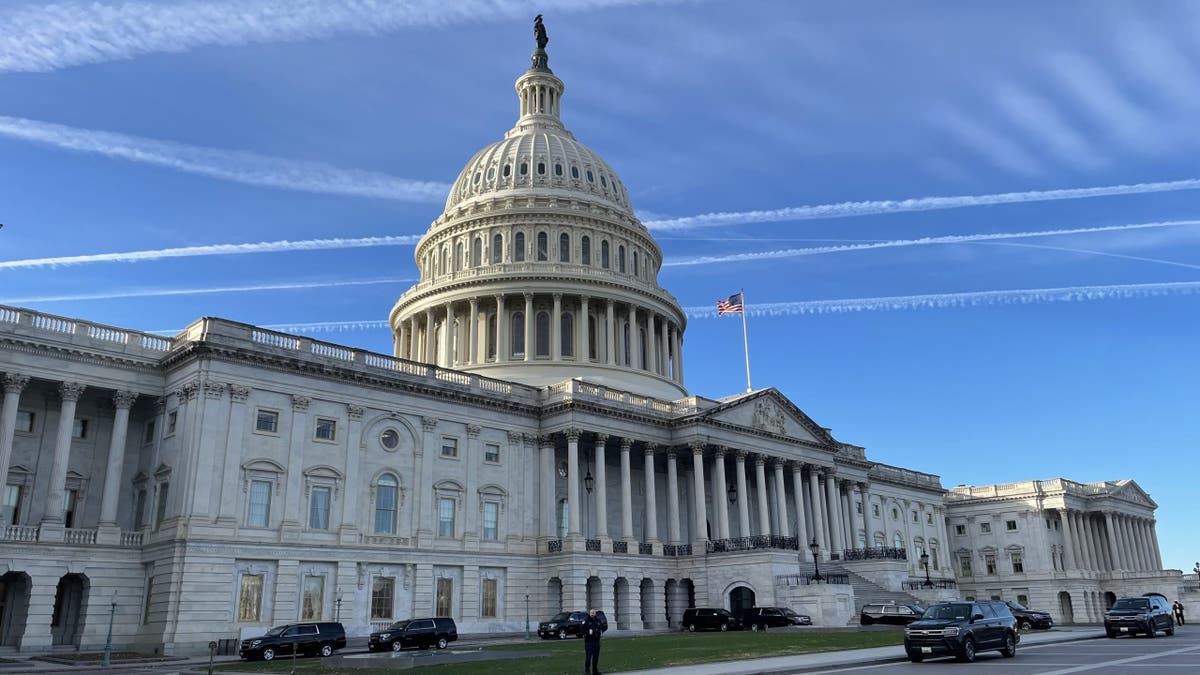
The U.S. Capitol Dec. 12, 2024, in Washington D.C. (Fox News/Paul Steinhauser)
CLICK HERE TO GET THE FOX NEWS APP
«The wall is important. Deportations are important, and we must maintain those. But we also must close the gap in the law so that, regardless of who’s president, we have the tools to fight the illegal immigrant criminals who inflict so much pain on this country,» said Knott.
«Immigration should be a net benefit to our country,» he added. «If we don’t punish those who want to come here to commit crimes, we will never have a healthy immigration system again. If we don’t fix this problem now, we might not have the chance to do it.«
Migrant Crime,Border security,Illegal Immigrants,House Of Representatives,Donald Trump,Immigration
INTERNACIONAL
Problemas legales y protestas de vecinos: el Reino Unido no sabe dónde poner a los migrantes
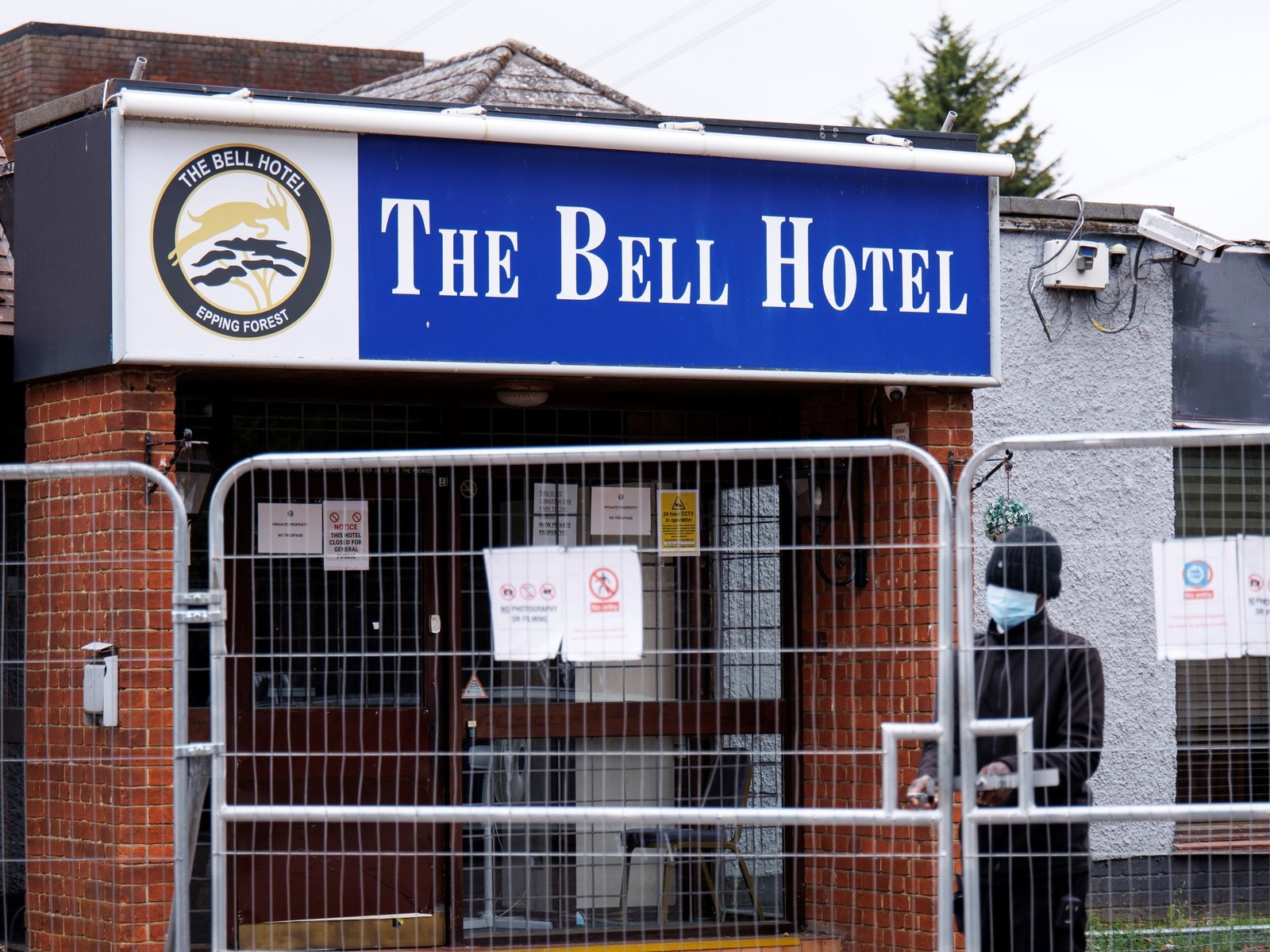
Protestas frente al hotel
Un gobierno conmocionado y sin salida
El hotel en el centro del debate
La población, encantada
Obligación de alojarlos
El «dilema» del asilo
INTERNACIONAL
SCOOP: White House touts guns and drug haul removed from DC streets as Trump’s crime blitz nets 550 arrests
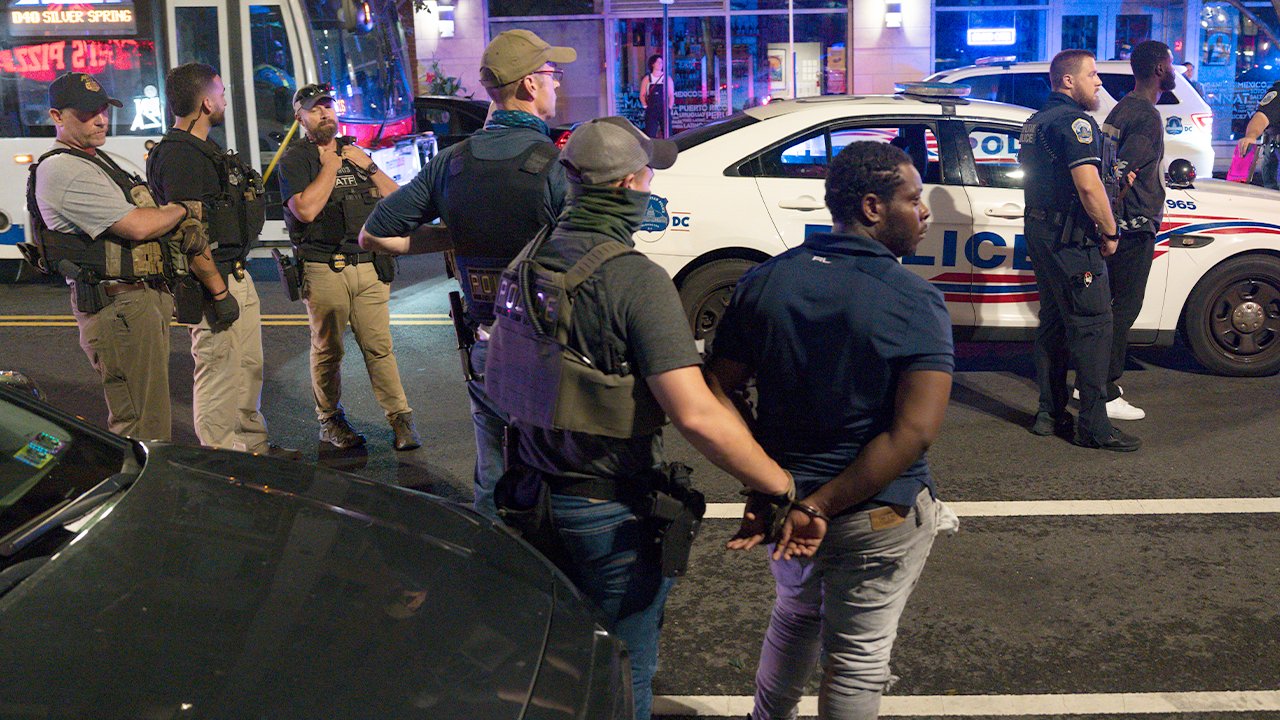
NEWYou can now listen to Fox News articles!
FIRST ON FOX: More than 550 arrests have been made in the nation’s capital amid President Donald Trump’s crime crackdown that began earlier in August, including officials recovering illegal firearms and removing drugs from the streets, photos shared with Fox News Digital show.
Local police and federal law enforcement officers in the city have made more than 550 arrests since Aug. 7, including the apprehensions of three known gangbangers, one of whom was an MS-13 member, according to White House data provided Wednesday to Fox News Digital.
«Thanks to President Trump’s bold actions to Make DC Safe Again, more than 550 dangerous criminals have been removed from the streets of our nation’s capital,» White House spokeswoman Taylor Rogers told Fox News Digital Wednesday of the arrests.
«While the Fake News tried to sell a lie that D.C. was safe, these arrests reveal the truth,» she continued. «Hundreds of violent criminals have been arrested by federal law enforcement agents for carrying illegal weapons, distributing deadly drugs, committing armed robbery, and having ties to dangerous gangs like MS-13. President Trump is making DC safe again by enforcing the law and everyday Americans support his commonsense, tough-on-crime policies.»
MS-13 GANG MEMBER ARRESTED IN DC AS BONDI TOUTS ADMIN’S ‘EXTRAORDINARY’ CRIME CRACKDOWN
More than 550 arrests have been made in the nation’s capital amid President Donald Trump’s crime crackdown that began earlier in August (Alex Brandon/The Associated Press)
Tuesday evening’s sweep of the city included 91 arrests, Fox News Digital learned, including 25 arrests of illegal aliens. Many of the illegal aliens arrested had prior criminal histories, according to the White House, including multiple illegal reentries, and a threat to kidnap or injure a person, destruction of property, burglary, possession of drugs and driving while intoxicated.
68 DC SUSPECTS ARRESTED IN SINGLE NIGHT AS WHITE HOUSE TOUTS TRUMP’S PUSH TO ‘CLEAN UP’ CAPITAL CITY
The White House exclusively shared photos of items recovered during the Tuesday arrests, which included a backpack teeming with baggies of confirmed illegal substances, handguns and a knife.
The White House told Fox News Digital that law enforcement has removed substances stretching from marijuana, cocaine, meth and fentanyl from D.C. streets since the crime crackdown began Aug. 7.
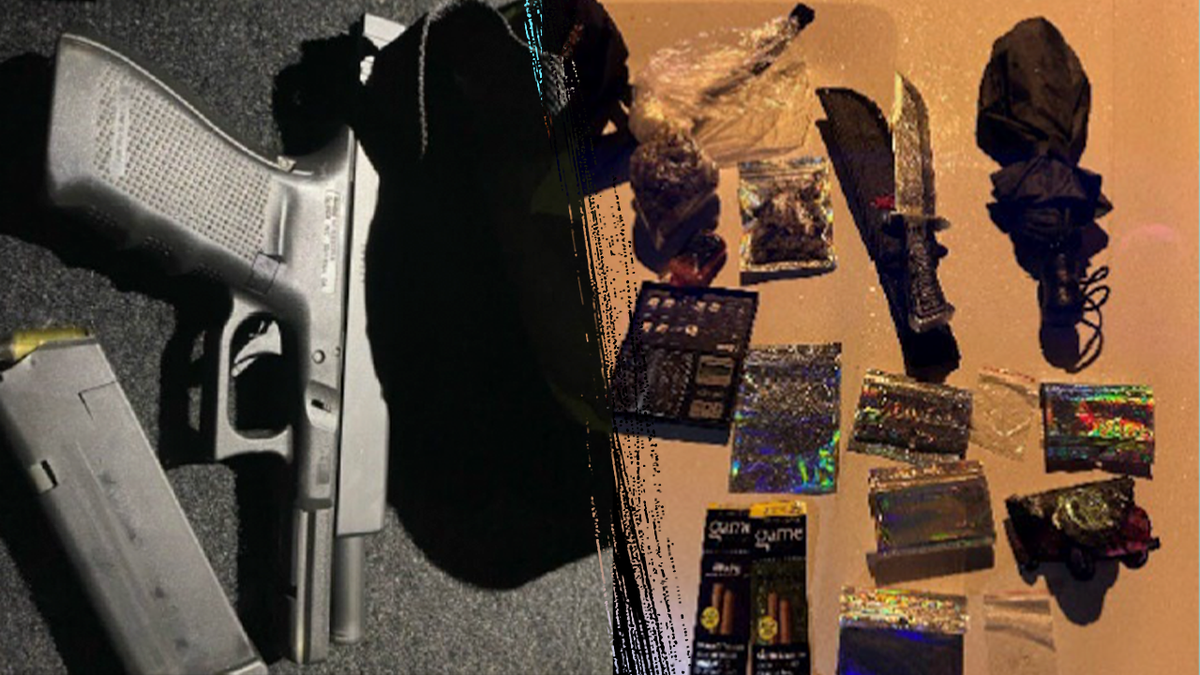
Left: Photo of an illegal handgun recovered by law enforcement in Washington, D.C., the evening of Aug. 19, 2025. Right: Photo showing a knife and illegal substances recovered during crime sweeps in the nation’s capital Aug. 19, 2025. (White House)
All in, law enforcement recovered eight illegal firearms Tuesday evening, and made arrests for crimes such as an assault on a police officer, armed robbery, carrying a pistol without license, assault with deadly weapon, driving under the influence and for outstanding arrest warrants related to «Child Abuse (Death)» and involuntary manslaughter charges.
HUNDREDS ARRESTED AS TRUMP’S WASHINGTON, DC, CRIME CRACKDOWN HITS FULL STRIDE
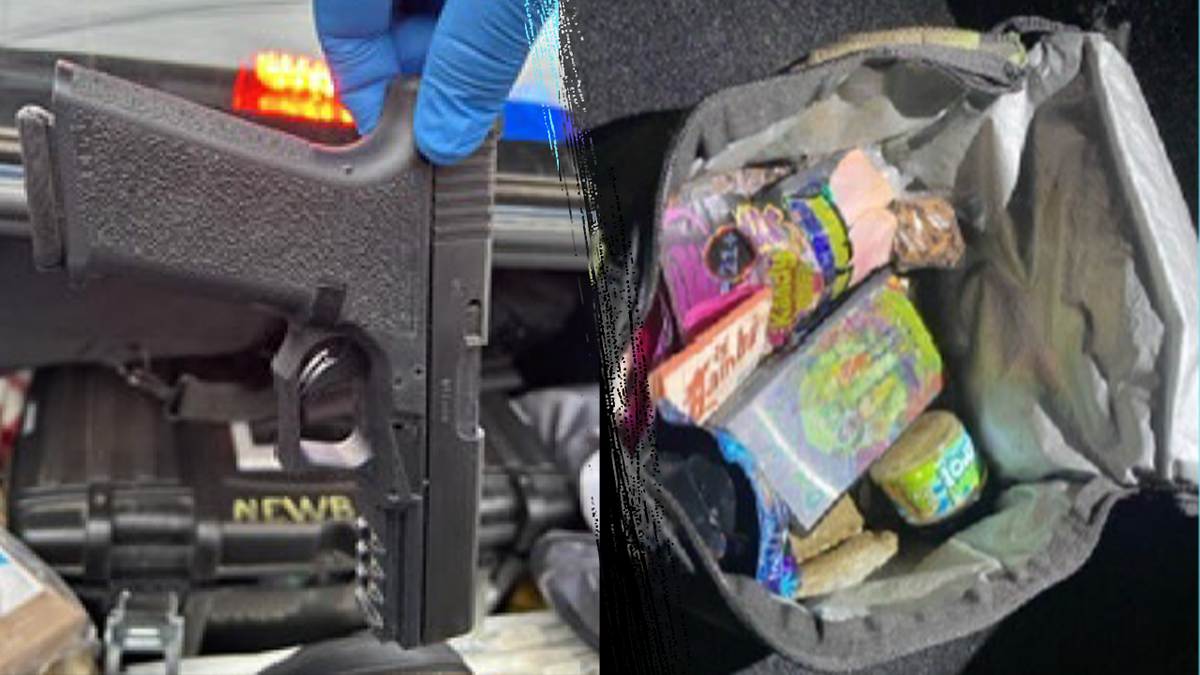
A pair of photos showing a recovered handgun on the left and a bag of unidentified drugs on the right. (White House )
A total of 48 homeless encampments across the city have been removed as of Wednesday, Fox News Digital learned.
Trump federalized the Washington, D.C. police department Aug. 11 amid a trend of high-profile attacks and killings in the city following the wild crime trends that erupted in the U.S.’ notoriously bloody year of 2020. The more than 550 arrests are part of Trump’s March executive order, which established the Making D.C. Safe and Beautiful Task Force, ahead of the president federalizing the city in August.
WHITE HOUSE LAUNCHES FEDERAL SECURITY BLITZ AS PRESIDENT VOWS TO END DC ‘CRIME PLAGUE’
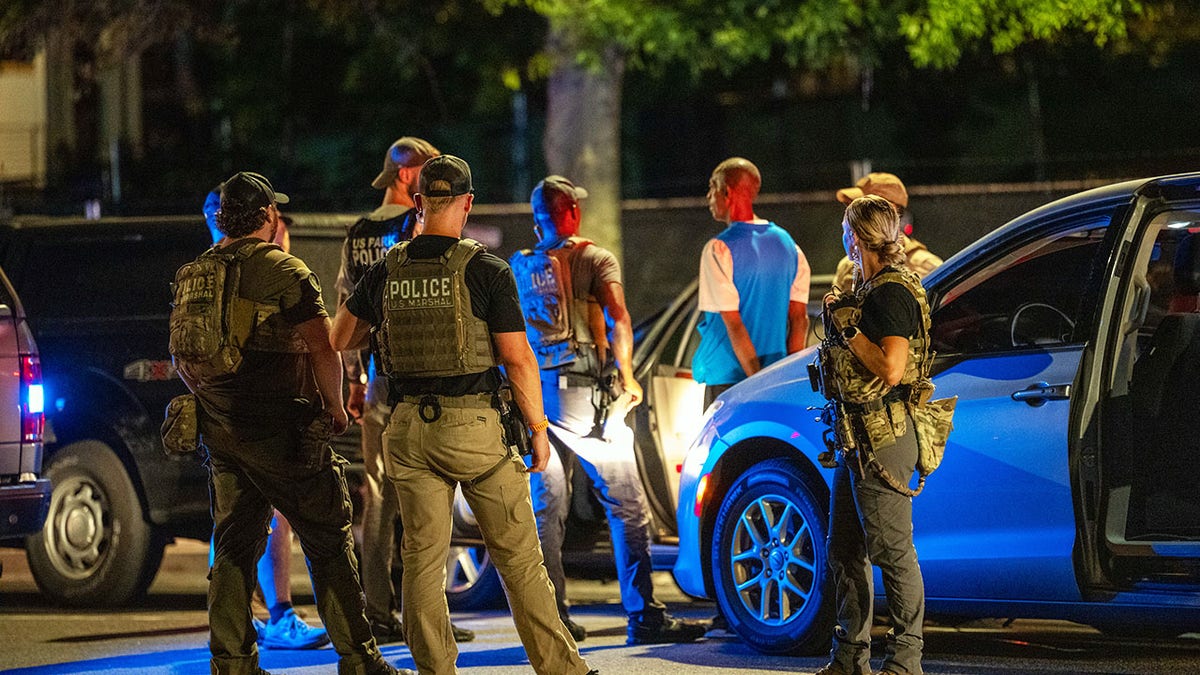
Federal law enforcement and the local D.C. police have made hundreds of arrests in Washington, since Aug. 7, Fox News Digital learned. (Andrew Leyden/Getty Images)
Hundreds of National Guard members, as well as the Metropolitan Police Department and personnel from federal agencies, such as the FBI, Drug Enforcement Administration, Capitol Police and the Bureau of Alcohol, Tobacco, Firearms and Explosives, have taken to the streets of D.C. to conduct sweeps and root out crime. The National Guard is not making arrests, but is assisting law enforcement with deterring crime and protecting the city.
There were more than 1,950 law enforcement officials who took part in Tuesday night’s sweeps and arrests, Fox News Digital learned. The crackdown is anticipated to continue heating up, including the U.S. Marshals Service offering $500 rewards to individuals who are able to provide tips that lead to arrests.
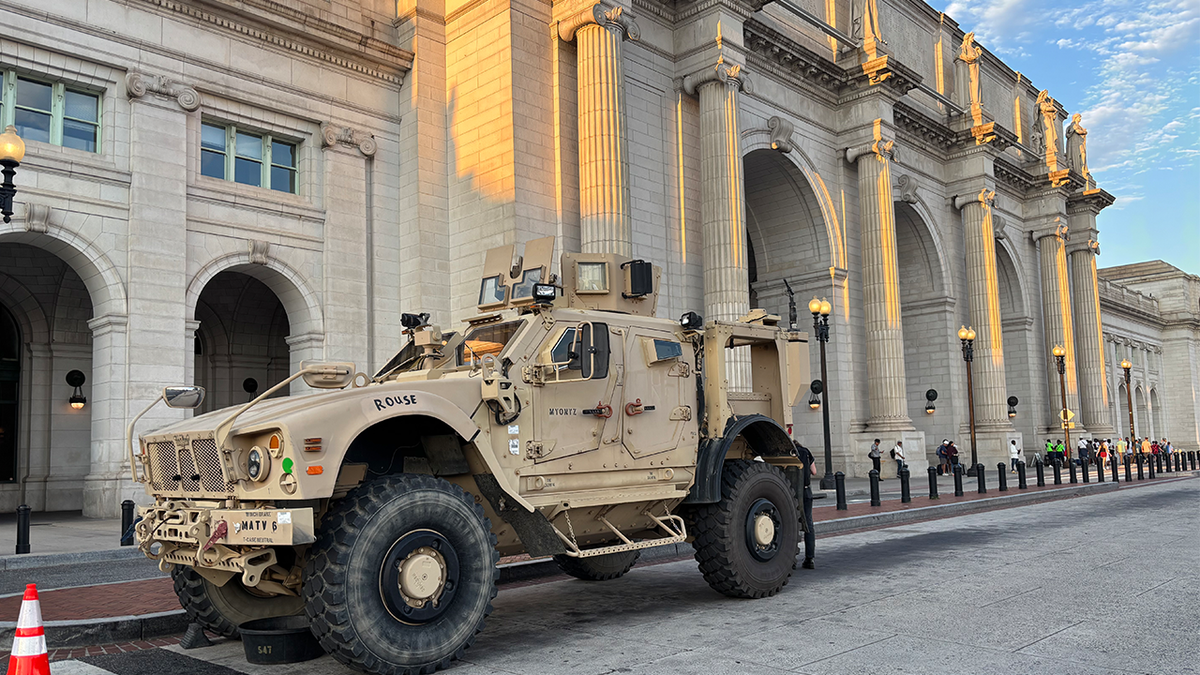
A mine-resistant ambush protected all-terrain vehicle is parked next to Union Station in Washington, D.C., Aug. 14, 2025, following President Donald Trump federalizing the city’s police department. (Fox News Digital/Peter Pinedo)
Democrats have slammed Trump over the federalization of the city’s police department, claiming crime data show violence is trending downward.
The Metropolitan Police Department’s crime data is currently under Department of Justice investigation in response to claims the force manipulated the data to produce more favorable crime trends in recent months, Fox News reported Tuesday.
SCOOP: TRUMP’S NEWEST DC CRIME CRACKDOWN YIELDS MORE THAN 100 ARRESTS
Trump had threatened to federalize the D.C. police department in the weeks leading up to his final decision, citing a handful of high-profile crimes that have rocked the city, including the fatal shooting of 21-year-old congressional intern Eric Tarpinian-Jachym in June; the fatal shooting of a pair of Israeli embassy staffers in May; and a brutal attack on a former Department of Government Efficiency staffer earlier in August.
Trump championed the crime crackdown in a press conference Aug. 11, when he first announced he would federalize the local police department under section 740 of the District of Columbia Home Rule Act, which allows the president to assume emergency control of the capital’s police force for 30 days.
CLICK HERE TO GET THE FOX NEWS APP
«Our capital city has been overtaken by violent gangs and bloodthirsty criminals, roving mobs of wild youth, drugged-out maniacs and homeless people,» Trump said Aug. 11. «And we’re not going to let it happen anymore. We’re not going to take it.»
donald trump,migrant crime,crime world,washington dc,police and law enforcement
INTERNACIONAL
Estados Unidos denunció abusos graves en Ecuador durante el conflicto interno
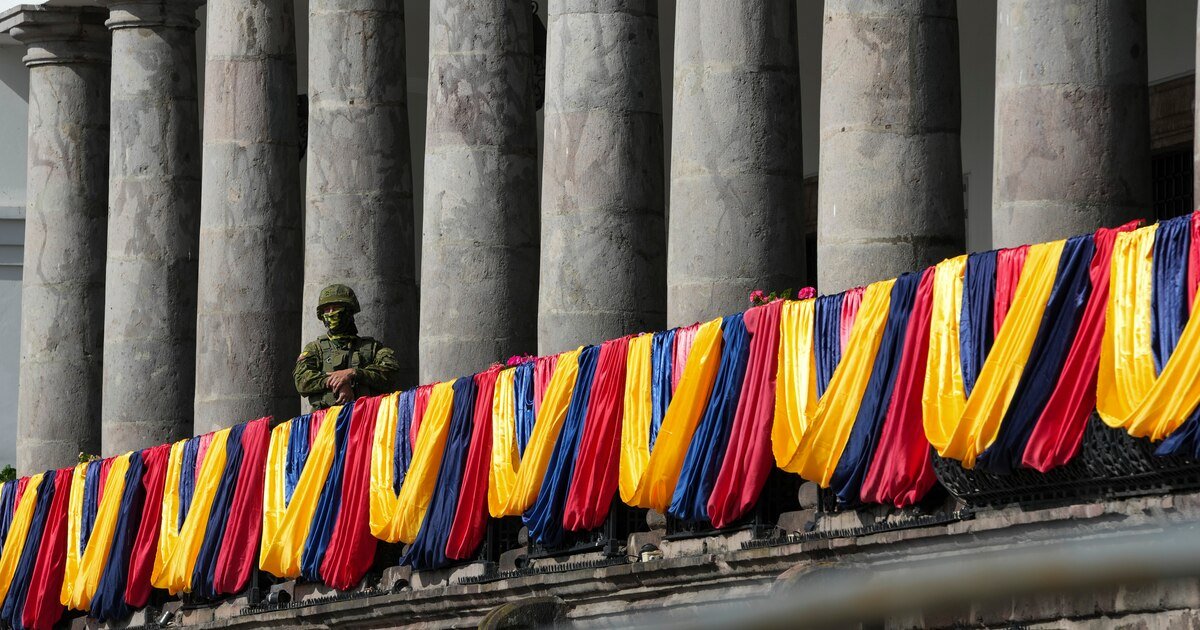
Un informe oficial del Departamento de Estado de Estados Unidos reveló que en Ecuador se produjeron ejecuciones extrajudiciales, torturas y detenciones arbitrarias desde la declaración del conflicto armado interno, emitida por el presidente Daniel Noboa el 9 de enero de 2024. El reporte forma parte del documento anual sobre prácticas de derechos humanos, elaborado por la Oficina de Democracia, Derechos Humanos y Trabajo del gobierno estadounidense.
Aunque el gobierno ecuatoriano afirmó, según el reporte, haber tomado medidas para identificar y sancionar a funcionarios que hayan incurrido en abusos, el informe incluye casos documentados de violaciones graves a los derechos humanos por parte de fuerzas estatales durante operativos de seguridad dirigidos contra grupos criminales calificados como terroristas.

Entre los casos más graves se encuentra el asesinato de 15 personas en el marco de las operaciones militares autorizadas por decreto ejecutivo. La medida permitía a las Fuerzas Armadas apoyar a la Policía Nacional en acciones contra 22 organizaciones de crimen organizado, pero generó preocupación internacional debido a los posibles excesos cometidos durante su implementación.
Uno de los testimonios recogidos por el Departamento de Estado detalla que militares sometieron a detenidos a prácticas degradantes, como sumergirles la cabeza en tanques de agua mientras les aplicaban descargas eléctricas para extraer información sobre armas o drogas. Otro episodio señala que los oficiales los hacían acostarse boca abajo y les pisaban con las botas distintas partes del cuerpo, incluyendo la cabeza, el cuello y la espalda.
Organizaciones no gubernamentales también reportaron múltiples arrestos arbitrarios realizados durante los estados de excepción. Solo entre el 8 de enero y el 8 de abril, la Fundación Regional de Asesoría en Derechos Humanos registró al menos cinco detenciones sin justificación legal, tres de ellas cometidas por militares y dos por policías. No obstante, el informe advierte que la cifra real podría ser mucho más alta, dado el número de denuncias no sistematizadas por temor a represalias.

Aunque no se cita en el informe, en diciembre de 2024, la detención irregular de cuatro menores por parte de militares y el hallazgo de sus cuerpos incinerados encendió las alertas sobre el uso abusivo de las fuerzas de seguridad. El caso continúa en investigación.
En paralelo, el documento destaca que la violencia en las cárceles continuó escalando durante 2024. Grupos armados al interior de los centros penitenciarios provocaron motines y fugas, mientras que desde el exterior se registraron actos de violencia dirigidos a intimidar a periodistas, funcionarios públicos y medios de comunicación. El caso más emblemático ocurrió el 9 de enero de 2024, cuando un grupo armado irrumpió en vivo en el estudio de TC Televisión en Guayaquil y mantuvo como rehénes a varios trabajadores del canal.
La libertad de prensa fue otro derecho severamente afectado, según el informe. El informe cita que Fundamedios reportó 22 agresiones contra periodistas perpetradas por bandas criminales entre enero y agosto de 2024, en un patrón que incluyó amenazas, ataques físicos y censura indirecta. A pesar de estos hechos, las investigaciones oficiales fueron escasas o nulas. También se documentaron casos de censura estatal, como la eliminación de periodistas de chats oficiales o restricciones de acceso a información pública.

El informe también hace referencia a la desaparición forzada de al menos tres personas, ocurridas presuntamente en centros de detención. En uno de los casos, el gobierno respondió afirmando que el detenido se encontraba en buen estado de salud, pero guardó silencio sobre las otras dos desapariciones denunciadas por organizaciones de derechos humanos.
En el ámbito laboral, el Departamento de Estado apuntó a la falta de garantías para la libertad sindical y la negociación colectiva. Según el informe, el Ministerio de Trabajo demoró o dificultó la legalización de nuevas organizaciones sindicales y en algunos casos, empleadores despidieron a los líderes antes de que los sindicatos pudieran inscribirse formalmente, sin que los tribunales ordenaran su reincorporación.
Pese a estos hallazgos, el informe cita que, en marzo de 2024, el presidente Noboa firmó las declaraciones de Chapultepec y Salta, comprometiéndose públicamente con la defensa de la libertad de expresión. Posteriormente, en agosto, emitió un decreto que establece protocolos de protección y capacitación para periodistas en riesgo. Sin embargo, a la fecha, el mecanismo de protección de periodistas, que debe ser financiado por el gobierno, aún no recibe recursos económicos para proteger a periodistas en situación de riesgo.
El informe forma parte de la evaluación anual que Estados Unidos realiza sobre la situación de los derechos humanos en más de 200 países y territorios. En el caso de Ecuador, la sección sobre “temas significativos” incluye también el aumento de secuestros, extorsiones y homicidios atribuidos a bandas criminales, y hace un llamado a que las autoridades garanticen que las políticas de seguridad respeten los derechos fundamentales de la población.
North America,WASHINGTON

 POLITICA2 días ago
POLITICA2 días agoPamela David se disculpó con Karina Milei por haber dicho que usaba un reloj de lujo

 CHIMENTOS3 días ago
CHIMENTOS3 días agoEl delicado estado de salud de Cacho Garay: «Sino mejora podrían apuntarle una extremidad»

 CHIMENTOS2 días ago
CHIMENTOS2 días agoUno por uno los famosos que serán candidatos en las próximas elecciones legislativas: «Van desde Virginia Gallardo y el Turco García hasta Porcel JR.»






































